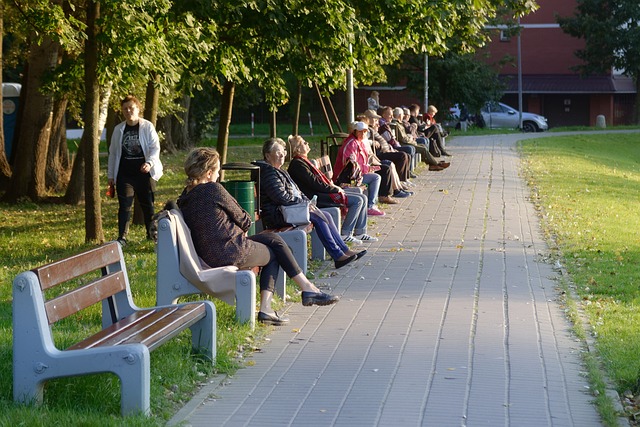Elderly Companion Services provide a crucial support network for seniors aiming to maintain independence in their homes. These services offer enhanced security and reduced loneliness, combating isolation that can worsen health conditions. Caregivers assist with daily tasks like meal prep, medication management, housekeeping, and transportation, ensuring safety and engagement. Services range from regular visits to live-in care, addressing needs from dementia to mobility issues. Choosing the right service aligns needs, preferences, and capabilities of seniors while empowering them to maintain independence at home.
Caring for elderly loved ones at home can be both rewarding and challenging. This guide explores the benefits and types of Elderly Companion Services, offering valuable insights for those considering this approach. We’ll discuss how to choose the right in-home care provider based on key considerations, along with practical tips for caregivers to create a supportive environment. By the end, you’ll be equipped to make informed decisions that enhance your elderly relative’s quality of life.
- Understanding Elderly Companion Services: Benefits and Types
- Choosing the Right In-Home Care Provider: Key Considerations
- Creating a Supportive Environment: Tips for Caregivers
Understanding Elderly Companion Services: Benefits and Types

Elderly Companion Services offer a valuable support system for older adults who wish to remain independent in the comfort of their homes. These services cater to various needs, from simple companionship and daily assistance to more specialized care. The benefits are manifold; they provide a sense of security and reduce feelings of loneliness, which is especially important as isolation can exacerbate health issues. Companions can help with tasks like meal preparation, medication management, light housekeeping, and transportation, ensuring the elderly individual stays safe and engaged.
Different types of Elderly Companion Services include regular visits from caregivers who offer social interaction and basic assistance, live-in care for more intensive support, and specialized services for those with specific needs, such as dementia or mobility challenges. This flexibility allows families to choose the level of care best suited to their loved one’s requirements, promoting a higher quality of life and fostering independence.
Choosing the Right In-Home Care Provider: Key Considerations

When considering in-home care for elderly loved ones, selecting the right provider is paramount. It’s crucial to look beyond just cost and consider factors that align with your relative’s specific needs and preferences. Reputable elderly companion services offer personalized care plans tailored to individual requirements, ensuring comfort and independence at home.
Researching agencies’ experience, staff training, and client references is essential. Additionally, understanding the scope of services provided—from basic assistance with daily tasks to specialized medical care—helps make an informed choice. A reliable in-home care provider should offer flexibility, prompt response times, and a commitment to empowering seniors to maintain their quality of life.
Creating a Supportive Environment: Tips for Caregivers

Creating a supportive environment is paramount when providing in-home care for elderly loved ones. Caregivers play a crucial role in fostering a space that promotes comfort, independence, and quality of life. Simple modifications can make all the difference. For instance, ensuring clear navigation within the home by removing clutter and installing handrails on stairs can enhance mobility and reduce fall risks. Additionally, creating a calm atmosphere with soft lighting and soothing decor can improve overall well-being.
Elderly companion services often go beyond physical care. Creating opportunities for social interaction and engaging activities tailored to individual interests can boost mental stimulation and happiness. Regular conversations, board games, or even simple leisure reading together can foster a sense of companionship and combat feelings of isolation. Caregivers should also be mindful of sensory needs, adjusting the environment as necessary to accommodate any vision or hearing impairments, ensuring comfort and safety for the elderly individual.
Providing quality care for elderly loved ones at home is not only feasible but also enriching, thanks to Elderly Companion Services. By understanding the various benefits and types available, carefully selecting a provider, and creating a nurturing environment, caregivers can ensure their seniors receive the best possible support. This holistic approach not only enhances the quality of life for the elderly but also strengthens the bond between caregiver and care receiver.
